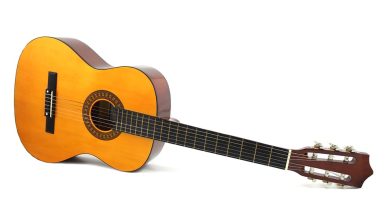5 Essential Guitar Tips for Recording Your Best Tracks Yet
5 Essential Guitar Tips for Recording Your Best Tracks Yet
Recording guitar tracks can be a challenging and rewarding experience for musicians. Whether you are a beginner or a seasoned guitarist, there are several essential tips to keep in mind when recording your best tracks yet. In this article, we will discuss five key tips that will help you achieve a professional and polished sound in your guitar recordings.
1. Prepare Your Guitar and Gear
Before you start recording, it is crucial to ensure that your guitar and gear are in optimal condition. Make sure your guitar is properly tuned and set up for recording. Check for any loose strings, fret buzz, or other issues that could affect the quality of your recordings. Additionally, clean your guitar and replace any old strings to ensure a fresh and crisp sound.
In addition to your guitar, it is essential to have the right gear for recording. Invest in a quality audio interface, microphones, and monitors to capture the best possible sound. Experiment with different microphone placements and settings to find the perfect tone for your recordings. Remember, the quality of your gear will directly impact the quality of your recordings, so it is worth investing in high-quality equipment.
2. Practice and Warm Up
Before you hit the record button, take some time to practice and warm up your hands. Playing guitar is a physical activity that requires dexterity and precision, so it is essential to warm up your fingers and hands to ensure smooth and fluid playing. Practice scales, chord progressions, and arpeggios to improve your technique and build confidence before recording.
In addition to practicing, it is crucial to warm up your hands to prevent injuries and strain. Stretch your fingers, wrists, and arms before playing to loosen up your muscles and improve blood flow. This will help you play more effectively and comfortably, leading to better recordings.
3. Focus on Timing and Rhythm
Timing and rhythm are crucial elements of a successful guitar recording. It is essential to play in time with the metronome and maintain a steady rhythm throughout your recordings. Practice playing along to a metronome to improve your timing and develop a strong sense of rhythm.
In addition to timing, it is crucial to pay attention to the dynamics and phrasing of your playing. Experiment with different accents, bends, and vibrato to add depth and emotion to your recordings. Focus on playing with intention and expression to bring your tracks to life and make them more engaging for listeners.
4. Experiment with Different Techniques and Tones
One of the most exciting aspects of recording guitar tracks is the opportunity to experiment with different techniques and tones. Try incorporating techniques such as palm muting, harmonics, and slides to add texture and variety to your recordings. Experiment with different tones, effects, and amp settings to find the perfect sound for your tracks.
In addition to technique and tone, it is essential to focus on the dynamics and expression of your playing. Use varying levels of volume, attack, and sustain to create a dynamic and engaging performance. Experiment with different articulations and phrasing to add depth and emotion to your recordings.
5. Pay Attention to Mixing and Editing
Once you have recorded your guitar tracks, it is essential to pay attention to mixing and editing to ensure a polished and professional sound. Experiment with different EQ, compression, and reverb settings to find the perfect balance for your tracks. Use editing tools to clean up any mistakes or inconsistencies in your playing and ensure a smooth and seamless performance.
In addition to mixing and editing, it is crucial to listen critically to your recordings and make adjustments as needed. Take breaks while mixing to give your ears a rest and maintain objectivity. Experiment with different mixing techniques and seek feedback from other musicians to improve the quality of your recordings.
In conclusion, recording guitar tracks can be a challenging yet rewarding process for musicians. By following these essential tips, you can improve the quality of your recordings and create polished and professional tracks that showcase your talent and creativity. Prepare your guitar and gear, practice and warm up, focus on timing and rhythm, experiment with different techniques and tones, and pay attention to mixing and editing to record your best tracks yet.






